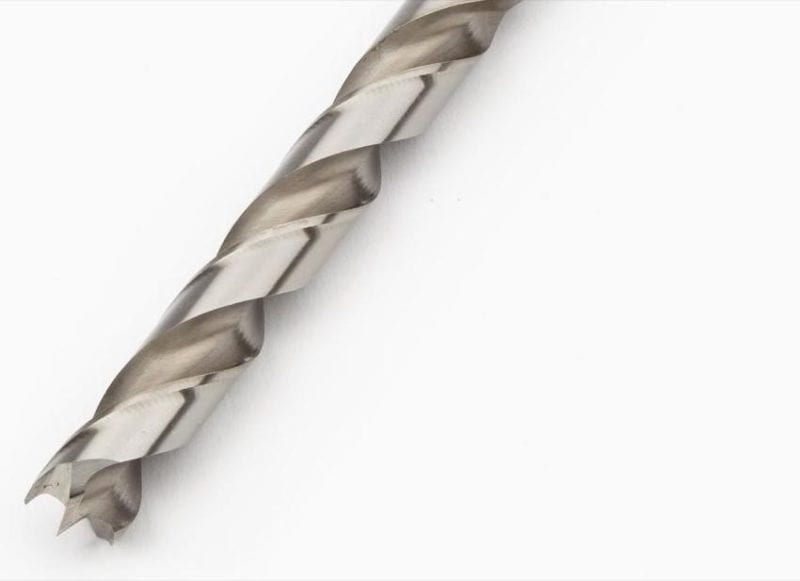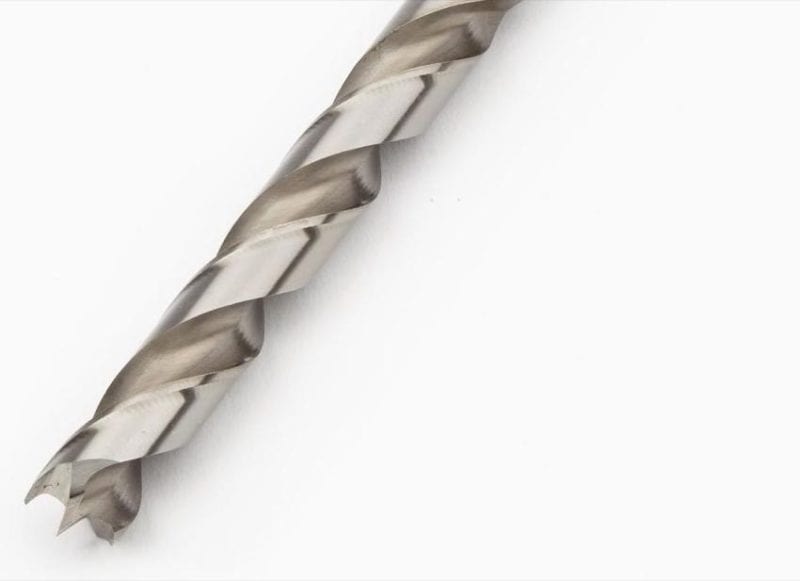Have you ever wondered how accurate drill bits are? Well, you’re in the right place! In this article, we’ll dig into the world of drill bits and discover just how precise they can be.
Now, you might be thinking, “Why does accuracy matter in drill bits?” The answer is simple. Accuracy can make a huge difference when it comes to drilling holes in various materials, whether you’re a professional or just a DIY enthusiast.
So, let’s buckle up and dive into the fascinating world of drill bits to find out just how accurate they can be and why it matters. Get ready for some eye-opening insights!

How Accurate Are Drill Bits? Exploring Precision and Performance
Drill bits are essential tools used in various industries and DIY projects. Whether you’re a professional tradesperson or a casual DIY enthusiast, accuracy is crucial when it comes to drilling. But just how accurate are drill bits? In this comprehensive guide, we will delve into the factors that affect the accuracy of drill bits, explore different types of drill bits, and provide tips on maximizing their precision.
Factors Affecting the Accuracy of Drill Bits
Drill bits’ accuracy depends on several factors that can impact their performance. Here are the key factors that affect the accuracy of drill bits:
1. Material
The material of the drill bit plays a significant role in its accuracy. High-quality drill bits are usually made from materials such as high-speed steel (HSS), cobalt, or carbide. These materials offer better durability, heat resistance, and superior cutting performance, resulting in more accurate holes.
2. Tip Design
The design of the drill bit’s tip can greatly influence its accuracy. The most common tip designs are split point and pilot point. Split point drill bits are self-centering and require less force to start drilling, enhancing their accuracy. On the other hand, pilot point drill bits are more suitable for softer materials and precision drilling applications.
3. Shank Size and Stability
The shank size of a drill bit, or the part that fits into the drill chuck, can affect its stability and accuracy. A larger shank diameter offers better stability and reduces vibration, resulting in more precise drilling. Additionally, using a drill press or a stable drilling platform can further enhance the accuracy of the drill bit.
Types of Drill Bits and Their Accuracy
There are several types of drill bits available, each designed for specific applications. Here are some commonly used drill bits and their accuracy:
1. Twist Drill Bits
Twist drill bits are the most popular and versatile type of drill bits. They are suitable for drilling holes in various materials, including wood, metal, and plastic. Twist drill bits can provide high accuracy, especially when used with a pilot hole to guide the drilling process.
2. Brad Point Drill Bits
Brad point drill bits are ideal for woodworking applications. They have a sharp center point and spurs on the sides that help create clean and accurate holes in wood. The spurs also prevent the bit from wandering or slipping, ensuring precise drilling.
3. Forstner Bits
Forstner bits are known for their ability to drill flat-bottomed holes. They are commonly used in woodworking projects where precision and clean cuts are required. Forstner bits have a center point and sharp cutting edges around the rim, allowing for accurate drilling without tear-out.
Tips for Maximizing Drill Bit Accuracy
To ensure maximum accuracy when using drill bits, consider the following tips:
1. Mark the Drilling Point
Before drilling, mark the exact point where the hole needs to be made. This helps maintain accuracy and prevents the bit from wandering off-course.
2. Use a Drill Press or Guide
When precision is crucial, consider using a drill press or a drilling guide. These tools provide stability and control, resulting in more accurate drilling.
3. Optimize Speed and Pressure
Using the correct drilling speed and applying consistent pressure can contribute to better accuracy. Different materials may require different drilling speeds, so adjust accordingly for the best results.
4. Select the Appropriate Drill Bit
Choosing the right drill bit for your specific project is essential for achieving accurate results. Consider factors such as material, hole size, and desired finish to select the most suitable drill bit.
In conclusion, drill bits can provide impressive accuracy when used appropriately and with the right techniques. Factors such as material, tip design, and stability play significant roles in determining the accuracy of drill bits. By understanding these factors and following the tips provided, you can maximize the precision and performance of your drill bits in various applications. Happy drilling!
Key Takeaways: How Accurate Are Drill Bits?
- Drill bits are designed to be accurate, but their accuracy can vary depending on factors such as material and quality.
- Cobalt drill bits are known for their accuracy and are suitable for drilling through hard materials like stainless steel.
- Precision-ground drill bits are more accurate than standard ones and are often used for demanding applications.
- When using a drill press or guide, you can achieve more accurate drilling results.
- The user’s skill and technique play a role in the accuracy of drilling with bits.
Frequently Asked Questions
Welcome to our Frequently Asked Questions page about the accuracy of drill bits. Here, we address common queries related to the precision and reliability of drill bits. Whether you’re a DIY enthusiast or a professional, understanding the accuracy of drill bits is essential for successful drilling projects. Read on to find answers to your questions!
1. How do drill bits affect drilling accuracy?
Drill bits play a crucial role in determining the accuracy of a drilling operation. Their design, sharpness, and alignment impact the precision with which a hole is drilled. A poorly designed or dull drill bit can result in wandering or crooked holes, compromising the accuracy of your drilling project. On the other hand, high-quality drill bits with a proper cutting edge and precise alignment will enable you to drill accurately and consistently.
To ensure drilling accuracy, it’s essential to select the right type of drill bit for your specific purpose. Different materials and applications require specific drill bit designs. Using the correct bit will minimize the chances of errors and result in precise holes that meet your requirements.
2. Can the accuracy of drill bits vary between different brands?
Yes, the accuracy of drill bits can vary between different brands. The quality control processes, materials used, and manufacturing techniques employed by different companies can impact the accuracy of their drill bits. Reputable brands invest in research and development to produce drill bits that provide consistent accuracy and performance.
When choosing drill bits, it’s advisable to opt for well-established brands with a reputation for quality and precision. These brands often have stringent quality control measures in place to ensure that their drill bits meet high standards of accuracy. While they may cost slightly more, the precision and longevity of their products make them a worthwhile investment.
3. Are there drill bit features that enhance accuracy?
Yes, there are drill bit features that can enhance accuracy. One important feature is the drill bit’s point angle. Different materials require specific point angles for optimal drilling. Choosing the right point angle will promote accuracy by reducing the chances of the bit wandering or slipping during the drilling process.
Another feature to consider is the flute design. Flutes help in chip removal by allowing debris to be expelled from the hole being drilled. Optimal flute design prevents clogging, reduces heat buildup, and improves cutting efficiency, leading to more accurate drilling results.
4. Can dull drill bits affect drilling accuracy?
Absolutely! Dull drill bits can significantly impact drilling accuracy. When a drill bit becomes dull, it can cause the bit to wander or create an irregular-shaped hole. Dull bits may also require more force, leading to an increased likelihood of slipping or causing damage to the material being drilled. These factors can result in inaccurate holes and compromised project outcomes.
To maintain drilling accuracy, it’s crucial to regularly inspect your drill bits for signs of dullness. If they are not cutting through materials cleanly or require excessive force, it’s time to replace or sharpen them. Keeping your drill bits sharp and in good condition will not only enhance accuracy but also extend their lifespan.
5. Is it possible to improve the accuracy of drill bits?
Absolutely! There are several steps you can take to improve the accuracy of your drill bits. First, ensure that you are using the appropriate drill bit for your specific application. Using the wrong bit can lead to inaccuracies and compromised results.
Second, regularly clean and inspect your drill bits. Remove any debris or buildup that may affect their performance. Third, use a drill press or a drilling guide for utmost precision. These tools provide stability and minimize the chances of the bit wandering during drilling.
Lastly, consider investing in high-quality drill bits from reputable brands. These bits are often manufactured with precision and undergo thorough quality control processes to ensure accuracy. While they may cost more initially, their reliability and longevity make them a valuable addition to any toolbox.

Picking the Right Drill Bit Size for a Screw
Summary
So, how accurate are drill bits? Well, it turns out that drill bits can be quite accurate, especially when used properly. The size and sharpness of the bit, along with the right drilling technique, can greatly affect the accuracy of the hole. However, factors like material hardness and drilling speed can also impact accuracy.
Additionally, using a drill press instead of a handheld drill can improve accuracy because it provides stability and precision. It’s important to remember that even with the most accurate drill bits, some slight variations may still occur. Overall, by choosing the right bit, using the correct technique, and considering your drilling conditions, you can achieve accurate results with drill bits.
